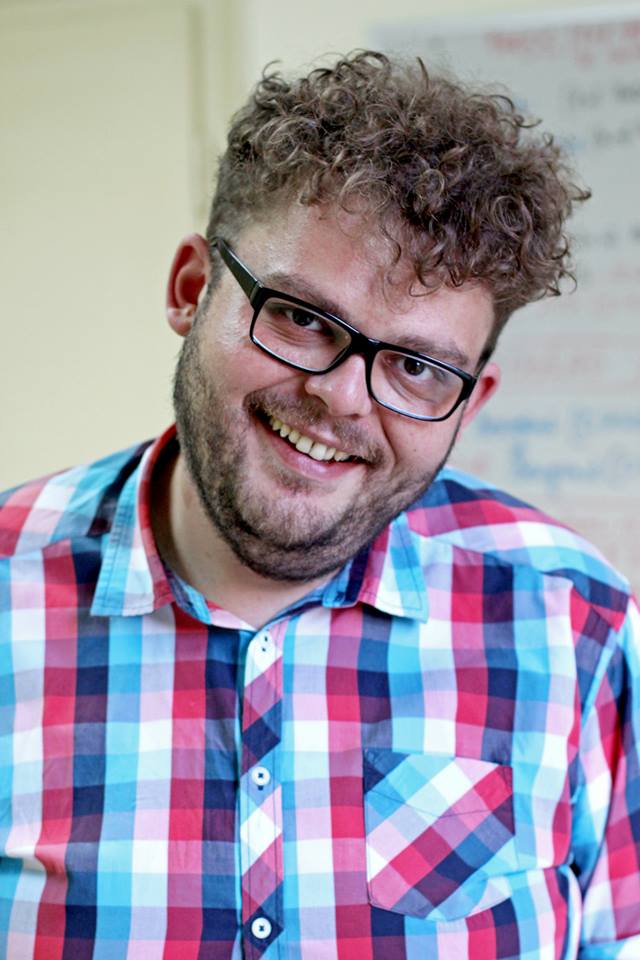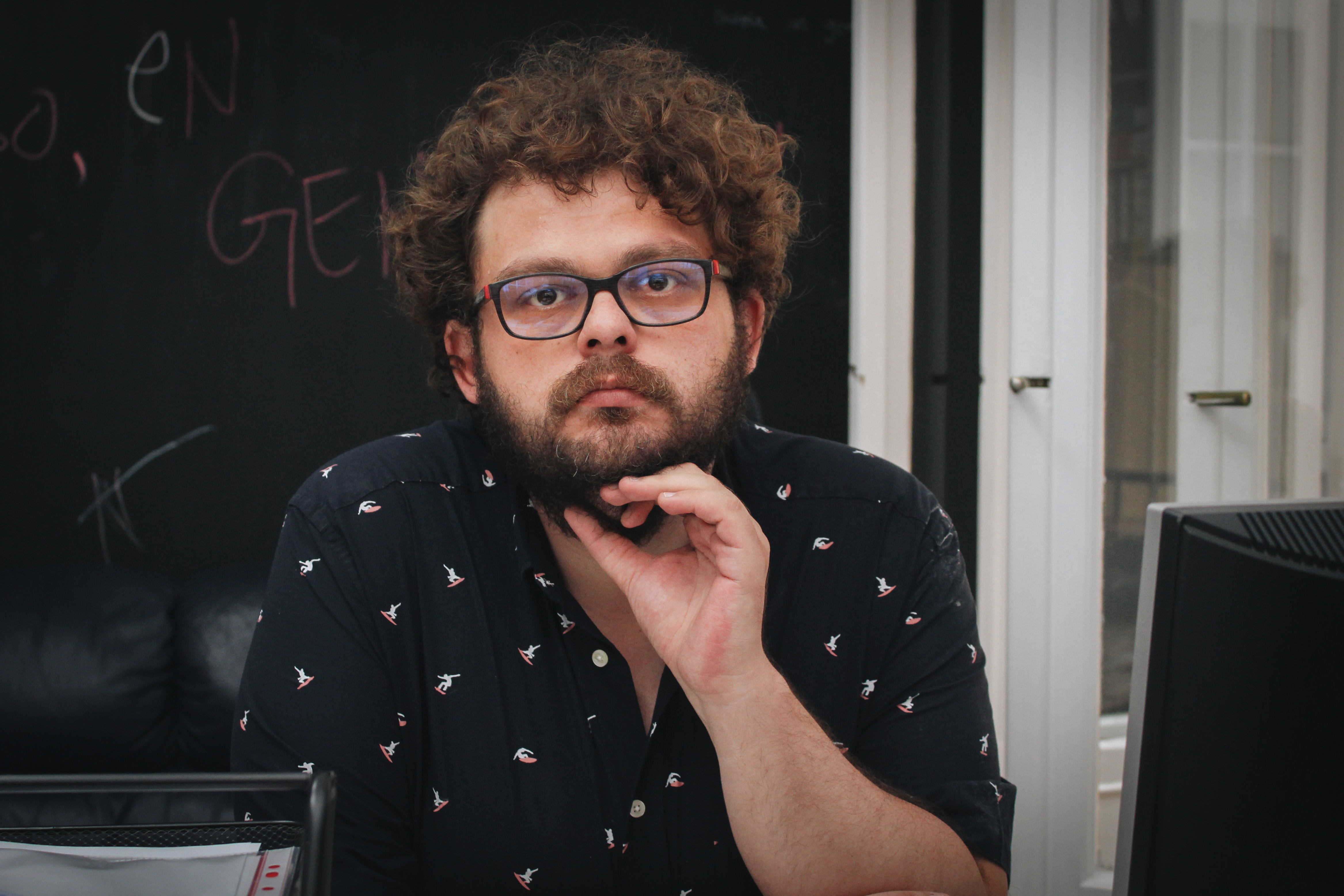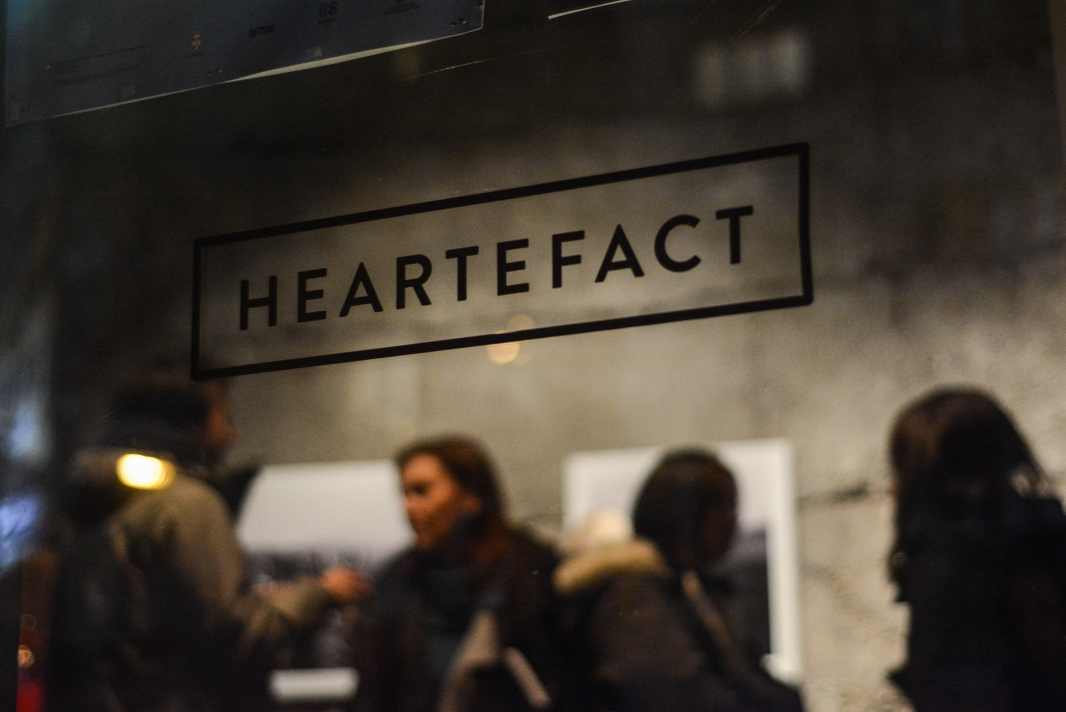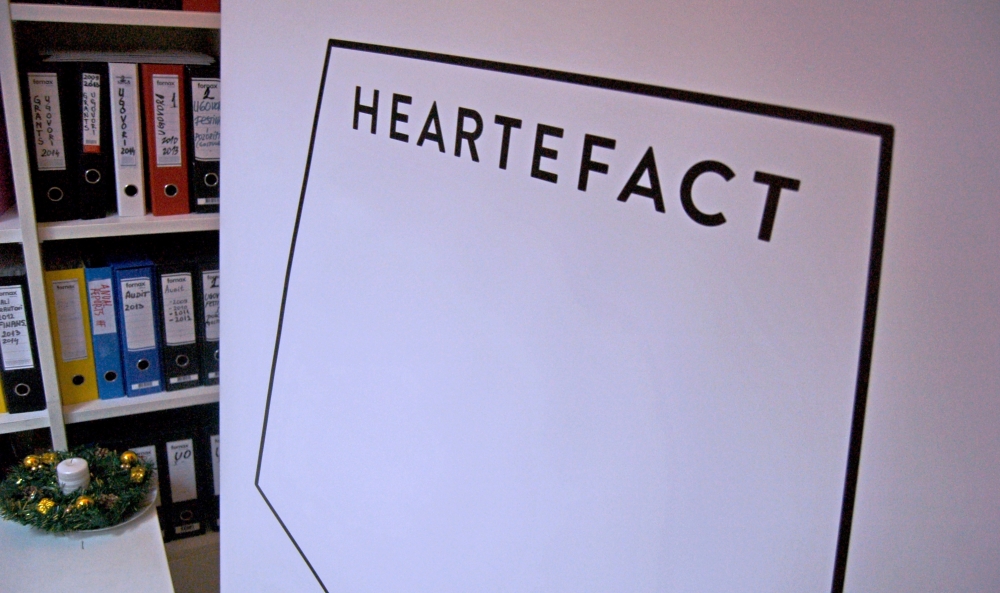Text: Žikica Milošević
Heartefact was founded in 2009 in order to strengthen the critical awareness and build an open and free society in the region of the Western Balkans through creative, expert, and artistic exchange. We talked to Andrej Nosov, Director and Founder of the Heartefact Fund – an independent regional foundation since 2009 and founder and leader of Youth Initiative for Human Rights.

They say that art will save the world. If not art, then certainly design and architecture are can create an environment conducive to more noble thoughts, or cultural exchange and an open society brimming with exchange of experiences. How much can Heartefact contribute to this?
For ten years now, Heartefact has been building relationships and establishing connections between very different artists, authors and thinkers. The idea is to help establish and connect the societies of the former Yugoslavia, but also to talk creatively about the topics that are difficult for our society. We have numerous programmes that brought young authors from Priština, Sarajevo and Zagreb to Belgrade for the first time ever. Furthermore, during this process, we have developed several different platforms this year. One of them is the NEW platform, which aims to launch and affirm young authors from the region and throughout Europe. There is also a very important cooperation with the partners from Sweden, Spain, Croatia, Germany and Great Britain, who together with us, have been trying to build bridges in the region for years now. There is a lot of free space and ideas how to do this and I have to say that the entire process is supported, which is important. Of course, the resources are never sufficient, but it is very important that the Cabinet of the Prime Minister, Ana Brnabić, has been playing an increasingly active role in this field of creative industries and culture, which they have recognized as an important segment for overall development. I think that the real power for the changes that we desperately need lies in this joint cooperation between institutions and all other stakeholders.

Speaking from your personal experience, do you think that persons from mixed backgrounds and those that are a sort of an amalgamation of different cultures could be the best ambassadors of reconciliation and understanding?
To be the ambassador of normal is not a function per se and we have to make this a generally accepted place. I am a citizen of Serbia and a proud citizen of Belgrade and that is my background. The fact that my great-grandfather came from somewhere and that my family is multi-ethnic is not a prerequisite for anything, and I think that there are very few mono-ethnic families in this part of the world.
I think that, in the twenty years since the last wars in the region, there is much more room for reconciliation and understanding, but also that we remember less the events of the past. We have now completely new generations, whose parents have left hatred as their legacy – the hatred that you cannot understand what purpose it does serve, except that it is just an inherited insanity.
It is important that we create the opportunity for these people to hear and see numerous examples of cooperation, normal relationships, coexistence and the like, and do away with their disillusions in this way.

What can Heartefact do to improve cultural exchange through translating books, organizing film screenings and translating and staging theatre plays, exhibitions and such? How much of this have you already done?
Via its regular competitions, like “The Competition for Modern Drama”, the small grant programme or other ongoing competitions, every year Heartefact contributes and creates opportunities for authors and organizations from the entire region to develop and establish regional collaboration. Additionally, we are going to create a number of opportunities for the young authors from our region in the following years. We are also expanding our activities to entire Europe through programmes implemented with the support of Creative Europe. I have already mentioned the NEW platform, intended for young, unknown playwrights from all over Europe. The goal of this platform is to discover, educate, and present young, talented and unknown playwrights and artists to the general public. By boosting the capacity and creating a space for the establishment and promotion of new stakeholders in contemporary creativity in the field of performance arts, the domestic theatre production will rise to a higher level, and will reposition itself on the European cultural and art scene.
We are currently working on the project titled “The Future of Myths” which aim is to connect artists and researchers from Croatia, Sweden, Spain and Serbia on researching the forgotten and suppressed cultural heritage in the form of theatre, performance arts and dance.
In addition to new people and young authors, I must mention that over the past ten years, more than a thousand people have gone through Heartefact’s programmes and they are all important to us. Among them are now very reputable and important authors whom we are proud of. You will have the opportunity to hear more about them during 2019, which is also the year when we are celebrating the 10th anniversary of the Heartefact Foundation’s work and development.

Following the release of the results of the City of Belgrade’s culture competition, you were very critical about the decisions made by the competition’s committees. What do you think of the treatment that the city and state culture authorities give to independent productions like yours?
Competition financing requires a serious reform. Not only because of the fact that decisions are made to satisfy different people’s interest, but also because of the lack of a clear strategy, vision, and in general, a concept of what and how do you finance. When you look at the projects that received funds at this competition, you start to wonder if you have understood well the fact that that this is the only source of funding for culture. It is very important to separate the financing of culture and institutions and financing of private stakeholders from the political and ideological aspects. It is important to support quality, and I’m not sure that quality is a factor that was considered in deciding who got funding in the last three years of the competition. Ministers, state secretaries and their entourage are always angry when we publicly say what a disaster these competitions are. We mean nothing personal, but disaster is a mild word for the terrible nonsense that is financially supported and the shameless and dumb explanations that are given to those who are refused financing.
Remarker has grown into an influential media outlet, with very popular podcasts like “Satisfaction in the Text” (“Zadovoljstvo u Tekstu”), hosted by Biljana Srbljanović and her colleagues. What are further plans in the development of Remarker? Maybe a cooperation with the mainstream media?
You see, the Ministry of Culture and Information and their online media content commission do not even know that this podcast exists. At least, that’s what they say in the rationale of their decision not to support it. Remarker has managed to create several important pieces of content in its first year, with “Satisfaction in the Text” being the most important. We will also continue with the series “Children of the Nineties”, but only regionally. Likewise, we want to restore the form of debate. Heartefact cooperates with Radio-Television of Serbia and we are also talking to others. We are open to all offers, ideas and suggestions.
What are your future plans?
As always, our plans are big. We want to launch the Belgrade Performing Arts Centre which would be a kind of theatre, academy and meeting place for contemporary production, but also new theatre. We want to open new spaces for different authors. We are interested in systemic resolution of the status of different stakeholders in culture – from ballet dancers to artists, and overall the resources for contemporary production. If we start with the logic that we need to preserve the heritage that is of great importance, the big question is what will be left to preserve in 50 years’ time, if we do not urgently begin to invest more seriously in contemporary production.